Middle Income Housing in Morocco: Future of Real-Estate in Morocco
Abdallah J. Slaoui, Chairman of JASCOM
One segment that will be the key driver of the future is middle-income housing. In Morocco, as more people join ranks of the middle class the demand for middle income properties will grow.
Interview with Abdallah J. Slaoui, Chairman of JASCOM
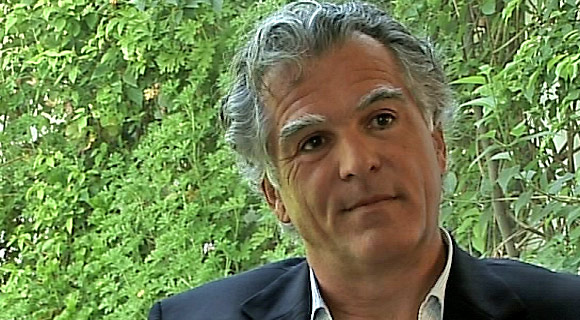
What is your general assessment of the real-estate sector in Morocco and what can we expect over the next couple of years?
When we talk about the real estate sector in Morocco, we have to make a distinction between the two main sectors: high-income luxury housing and lower-income social housing. I think those are two completely different markets, and they behave differently.
One segment that will be the key driver of the future is middle-income housing. In Morocco, as more people join ranks of the middle class the demand for middle income properties will grow.
The luxury housing market is linked to both the national and international demand depending on the geographic situation of the project, whereas the lower-income housing market is clearly driven by local demand.
For lower-income housing, there is currently a deficit of about one million units, along with an annual increase of 100 000 units. Today Morocco builds, all in all, maybe 150 000 – at best, 200 000 – units per year. We are just covering the annual increase, and barely starting to absorb the global deficit. In this sector, there will be a large demand for a long period of time.
The luxury segment, on the other hand, is not only linked to the national market , it can also be affected by the international conjecture. One segment that will be the key driver of the future is middle-income housing. In Morocco, as more people join ranks of the middle class the demand for middle income properties will grow. Currently, Morocco real-estate sector is either oriented towards the luxury and low income housing and I think there is a huge potential in the middle-income housing in the future. 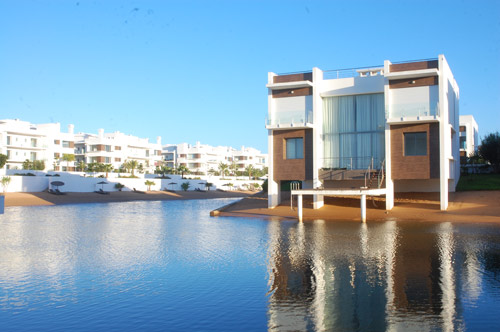
Are you seeing any signs that the slump, in the context of luxury housing, is over?
I can’t tell that I don’t see a recovery happening yet, because we begin to see some growth in luxury-type investments. However, it is not sufficient but I think that it is better than the last couples of years.
What are some opportunities for foreign investors in Morocco? Is it possible for them to invest in social housing?
A foreign investor can certainly invest in social housing, or in any sector – except for agricultural land. That is the only sector on which there are certain restrictions. As far as social housing is concerned, it is sufficient to create a Moroccan company and to begin buying plots of land. Certain foreign companies have already begun to invest in this sector. However, a foreign investor will have to face off the competition from many established players.
What are some of the long-term challenges for the real estate sector?
The future of the sector is going to be linked to the development of the middle class and of middle-income housing. If the country continues to develop at a normal rhythm, this is the segment that will eventually drive real estate in Morocco.
The real challenges however consist of short-term obstacles. The legal system must be reviewed totally – I think this is a fundamental issue. Investors, buyers and everyone involved in real estate must be able to defend their rights. Another short-term obstacle at this point is red-tape, which consumes a lot of our work and our energy. Much of it is completely unnecessary, and if it were eliminated the rate of investment could easily double without much effort.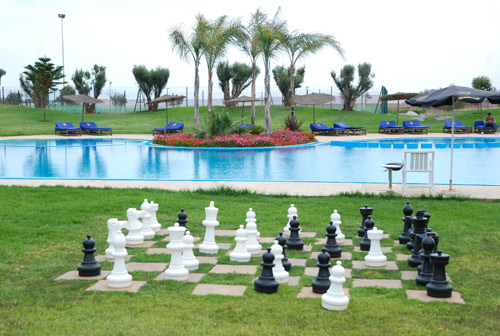
Some government officials we have interviewed claim that there is no problem with red tape. How do you evaluate this?
Things have improved, there is no question. But I am not completely satisfied. There needs to be more fluidity and more responsibility. The problem lies mainly with the mid-level administration, which has to be made more aware of the consequences of its decisions, or lack thereof. I think that higher levels of government are aware of the challenges we face and are doing what is necessary, but at the local level it can be another world altogether.
Let’s talk about the projects themselves and the story behind your group.
Historically, we were in a completely different sector. We were at one point the number one world producer of champagne corks. That business was sold about ten years ago, and we now concentrate mainly on real estate as well as the hotel business. If I had to give one of our main credos, I would say that we appreciate the importance of buying an apartment or a house, whatever its cost or luxury level. It represents a long-term commitment, and I think it’s important to deliver a high level of quality and attention to the product we deliver. It’s important that buyers know that when they buy a unit from us, they will have long-term quality assurances.
For instance, we set up an after-sales service for our projects. We accompany clients in this way until they are perfectly satisfied. This is particularly important for people who have just purchased their first apartment, for example.
Which areas would you like to develop further?
We continue to invest heavily into social housing. In the mid-term, we want to move up slowly into middle-class housing. Today, this segment of the population has trouble finding housing – it is often too expensive, or on the other hand the quality may not be high enough. I think over the long-term Jascom will focus more on middle-income housing.
Let’s talk about your flagship project, Eden Island.
It is located in Bouznika, a sea-side town close to Rabat. Our objective there was to do something innovative, and we started with two basic principles. The first one is that families buying beach houses often have trouble keeping children entertained. 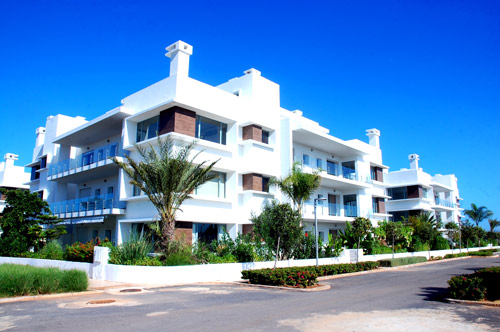
With that in mind, we decided to build an integrated resort, with a skate park, a surf school, a BMX trail, a climbing wall, pools and all sorts of activities for kids from the age of 4 to 18. That was one of the main requirements when we designed the project. The second principle is that people, at a sea-side resort, want a view of the sea.
We asked ourselves, after building the first row of housing facing the sea, what shall we do with the rest of the property? We decided to resolve this problem by creating an artificial inland sea of around four hectares. Water is brought to the inside of the property through a complex system linked to the ocean, so that it moves in with high tide and recedes with low tide. In that way, after 24 hours, the water is completely renewed. There is no pumping involved, so the process is ecological, and we have no problems related to stagnant water like mosquitoes. Thanks to this system, every property can have a view of the sea.
Which phase of the project is currently underway?
The first phase, which consists of 36 villas and 210 apartments, is completely finished. The infrastructure of the site is finished as well. We are almost finished selling this phase, and once this is done we will move on to the second phase.
Are you open to outside investors?
Yes, we are always open to such opportunities. We’ve been looking at getting foreign investors to invest with us in projects in Morocco. The banking system has its limits, and in real estate it’s very important to have the power to buy plots of land quickly in order to take advantage of opportunities.
Can you tell us about your hotel business?
We have one hotel in Marrakesh, called Domaine des Remparts. It is a boutique hotel with 32 suites, with lots of charm. I think there are many opportunities in the hotel business in Morocco – not necessarily just in tourist destinations like Marrakesh, but also in cities like Casablanca. I think tourism will be an important driving force for economic development in Morocco.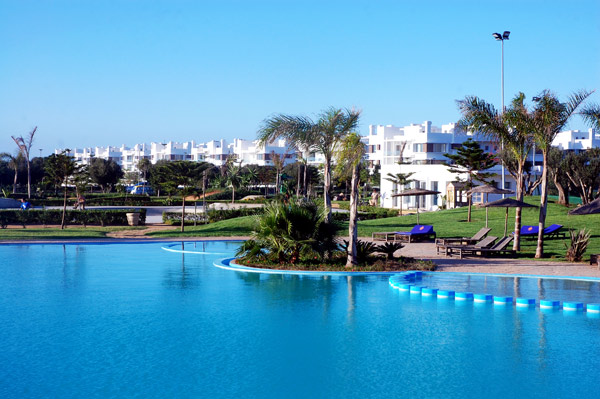
Tourists these days often look for authentic experiences, which boutique hotels and riads can offer them…
Riads are somewhat different, they are more like guest-houses rather than hotels. They answer a certain segment of the demand, so it’s good that they exist, but they don’t supply a very significant number of rooms. However, you have to keep in mind that Morocco has an advantage: it has sun year-round, and is only a three-hour flight away from most European capitals.
How do you see your company evolving in the future, what is your dream?
I would like to build a company that is sufficiently well-organized and has an independent basis. Ideally, I would want it to continue existing even after I am gone.
And in terms of branding and image?
I think it’s important that we are recognized as a company that is concerned by the needs of its clients, regardless of their level of housing. We want to provide quality for every tier of housing and be known for our quality products.